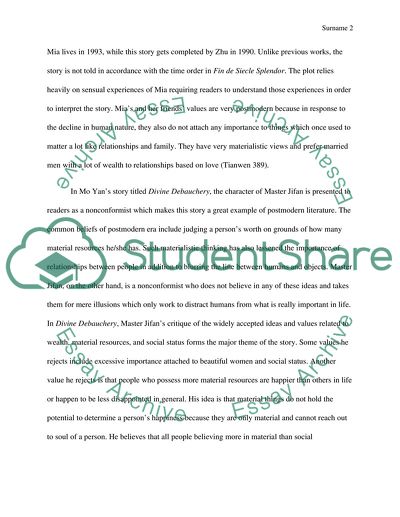Cite this document
(“Modern Chinese Literature Book Report/Review Example | Topics and Well Written Essays - 1250 words”, n.d.)
Modern Chinese Literature Book Report/Review Example | Topics and Well Written Essays - 1250 words. Retrieved from https://studentshare.org/literature/1693765-modern-chinese-literature
Modern Chinese Literature Book Report/Review Example | Topics and Well Written Essays - 1250 words. Retrieved from https://studentshare.org/literature/1693765-modern-chinese-literature
(Modern Chinese Literature Book Report/Review Example | Topics and Well Written Essays - 1250 Words)
Modern Chinese Literature Book Report/Review Example | Topics and Well Written Essays - 1250 Words. https://studentshare.org/literature/1693765-modern-chinese-literature.
Modern Chinese Literature Book Report/Review Example | Topics and Well Written Essays - 1250 Words. https://studentshare.org/literature/1693765-modern-chinese-literature.
“Modern Chinese Literature Book Report/Review Example | Topics and Well Written Essays - 1250 Words”, n.d. https://studentshare.org/literature/1693765-modern-chinese-literature.


